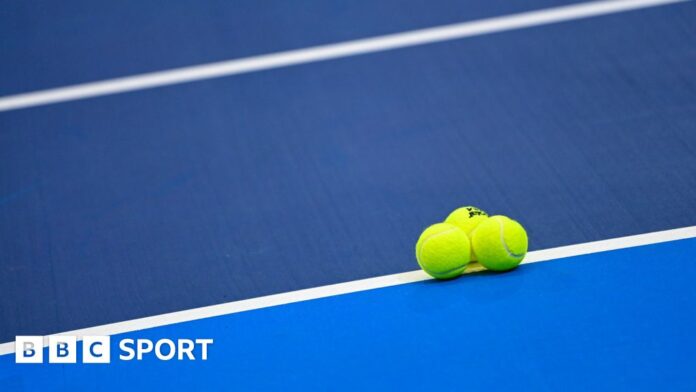The PTPA says it was set up to “support, protect and advance players’ well-being on and off the court”.
It has so far had a fractious relationship with tennis’ established powers and has not been able to get into the room where key decisions are made.
Nassar said he thinks the system is “patently unfair to every player, Jannik included” and highlighted the case of Britain’s Tara Moore.
Moore was Britain’s leading women’s doubles player when she was provisionally banned for testing positive for nandrolone and boldenone in May 2022.
She was cleared by an independent tribunal in December 2023, but 10 months later is still waiting for the ITIA’s appeal against that decision to be heard by Cas.
“I have many reservations about how every single one of those cases is handled,” Nassar continued.
“In Tara, here is a player who won her appeal, and certainly wasn’t the number one player in her sport, but she still missed 18 months.
“She’s still dealing with an appeal and fighting to get her reputation back. There is no winning in that case.”
Wada’s appeal against the Sinner verdict may well be heard more quickly.
An appeal by the former world number one Simona Halep was heard just over four months after it was registered, with the verdict issued by Cas a further month after the hearing.
It was, however, only last Thursday that the panel’s full reasoning was published.
Cas cut Halep’s suspension for testing positive for roxadustat from four years to nine months but concluded that despite steps actively taken by her to ascertain the contents of the supplement, considered the fault of the negative test, “there was fault on the player’s part”.
Wada will also be hoping to prove fault or negligence on Sinner’s part.
The initial tribunal decided Sinner was inadvertently contaminated with clostebol by his physiotherapist, Giacomo Naldi, who had applied an over-the-counter spray containing the banned substance to treat a cut on his own hand.

